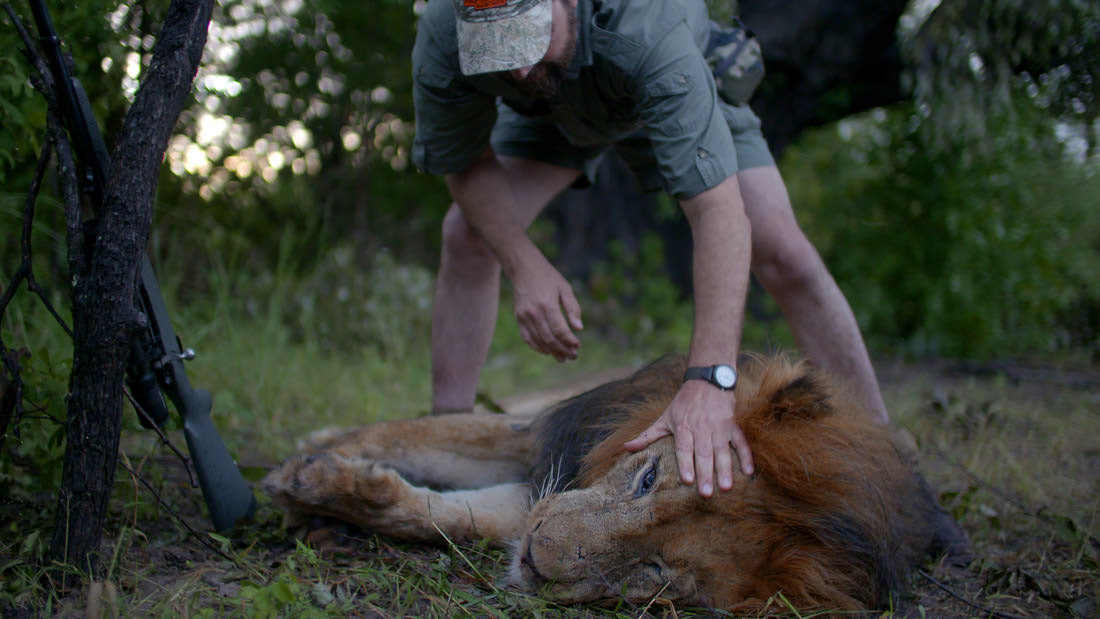We recently had the opportunity to attend a screening of the documentary film “Trophy” at the 2017 Sundance Film Festival. When we found out that this film would be screened at Sundance we were eager to see how non-hunters (not anti-hunters) would portray the issue of big game hunting and conservation. Would they demonize the hunter as the blood-thirsty killer with no feelings? Would they focus on the parts of the hunt that are actually the most important (i.e. the preparation, the stalking, etc.) or would they draw all the attention to the kill? In fact, I warned my friend (who is a hunter himself) that we may be entering “hostile territory” in the sense that the film could be very anti-hunting, forewarning him to relieve myself of responsibility if that were the case. After viewing the film in a setting where we were most likely the only people in the room who had personally hunted ourselves, we left the theater feeling that the film had done a fair job of laying out the issue on both sides, and in all likelihood changed many peoples feelings on the role that big game hunting actually plays in the complex world of conservation. I would even go as far as to say that this film lays out the case that big game hunting has an essential role in maintaining stability in many African regions, and in many cases it has increased the numbers of many animals that are being hunted. Along with other benefits like stabilizing habitat and even reviving habitat that would have otherwise been lost.
The film follows several people involved in the conservation effort, including Texas-based hunter Phillip Glass and the world’s largest private rhino breeder in South Africa John Hume. Although Glass did a good job at portraying what it is to truly be a respectful hunter, I often felt like he wasn’t clearly communicating his message and I felt like I wanted to jump in and speak for him so that others who are not familiar with the subject would better understand. In one cringeworthy scene another “hunter” is shown harvesting a crocodile in a non-fair chase environment, saying something like “I don’t want to spill my beer” as he finishes off the captured croc by shooting it in the head, all while cursing up a storm. Both of us agreed that although this is a reality in the hunting world, this type of hunting is not representative of everyone that hunts as it skips the most important parts of the hunt, namely the preparation, the anticipation, and the stalk. Early on in the film I worried that non-hunters would not be able to grasp that hunters and poachers are two completely different things, but at the end of the film I felt that this subject has been clarified. This film also did a wonderful job at showing the often indefensible arguments that environmentalist and some bureaucrats make against hunters and the hunting community, even showing how these policies hurt the animals they think they are protecting.
John Hume came across as a logical, driven, and often frustrated rhino breeder that was fighting an uphill battle against laws that prevent him from selling the horn, harvested painlessly from his rhinos every two years, to an Asian market with high a demand. The film explores the seemingly negative effects that these laws have had fate of the rhinos existence due to skyrocketing poaching numbers. Another critical persona that is followed in this film is Chris Moore, a wildlife officer and anti-poacher based in Zimbabwe. As Chris talks on screen his tired look and often trembling voice are indicators of his passion for protecting the wildlife from poachers. In the end he concedes that legal hunting has its place in the role of conservation by stating that killing one to save many is better than letting them all be killed illegally.
In the end we both left satisfied that hunters had gotten a fair shake, that the issue is not one-sided, that no simple fix exists, and also that big game hunting and the resources that it provides is truly an essential role in the conservation effort. I recommend that everyone see this film, hunters, non-hunters, and even anti-hunters…the arguments are hard to dispute.
For great videos every week be sure to subscribe here:

